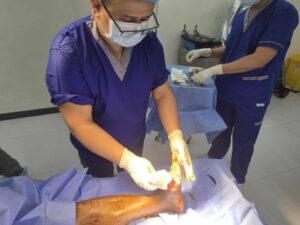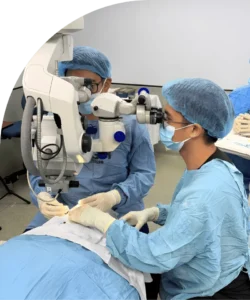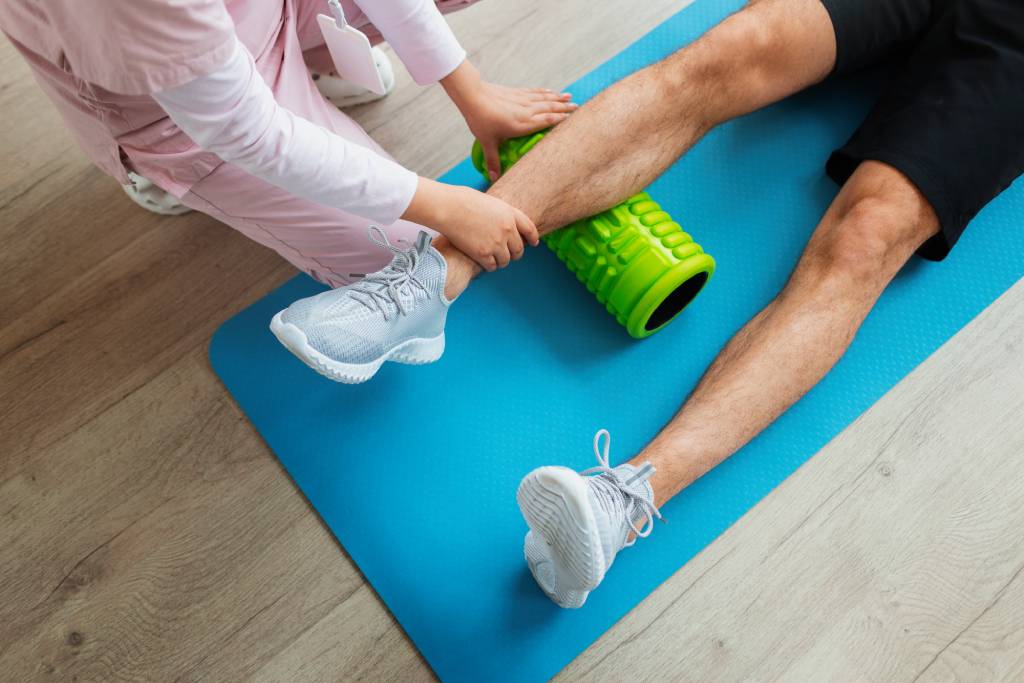Knee replacement surgery can be life-changing, offering relief from chronic pain and restoring mobility. Patients often underestimate how crucial preparation is for a successful recovery. Engaging in pre surgery knee replacement exercises strengthens muscles, improves joint flexibility, and can reduce complications after surgery. Proper preparation allows you to move with confidence and speeds up the rehabilitation process. At Hips and Knees Joint Restoration and Replacement Center, we guide patients through every step, ensuring safe and effective pre-surgery exercises for optimal outcomes.
Why Pre-Surgery Knee Exercises Matter
Preparing your knees before surgery is not just about strengthening muscles; it directly impacts recovery speed and overall joint function. Preoperative exercises improve the strength of surrounding muscles, particularly the quadriceps, hamstrings, and calves, which support the knee joint. Stronger muscles reduce the strain on the joint after surgery, making daily movements easier and more comfortable.
Patients who follow pre surgery knee replacement exercises often experience less post-surgical pain and regain mobility faster. These exercises also help improve joint flexibility and circulation, which can minimize swelling and stiffness after the procedure. For international patients traveling to the Philippines for surgery, pre-surgery preparation ensures they arrive physically ready for surgery and rehabilitation.
Key Benefits of Pre-Surgery Knee Exercises
Engaging in pre surgery knee replacement exercises offers several benefits that extend beyond the surgery itself.
Muscle Strengthening: Targeted exercises strengthen the quadriceps, hamstrings, and calves, which are crucial for supporting the knee during and after surgery. Strong muscles can help reduce the risk of falls and improve balance.
Improved Joint Flexibility: Exercises that encourage controlled bending and stretching maintain or enhance knee range of motion. Improved flexibility makes it easier to perform daily activities, such as climbing stairs or walking long distances, after surgery.
Reduced Post-Surgery Pain and Swelling: Preoperative exercises stimulate circulation and prepare the joint for recovery. Better circulation reduces the likelihood of excessive swelling and stiffness, contributing to a more comfortable healing process.
Faster Rehabilitation: Patients who consistently perform pre surgery knee replacement exercises often progress faster in rehabilitation. The body adapts more quickly, allowing individuals to return to normal activities sooner.
Safe Pre-Surgery Knee Exercises
Certain exercises are highly effective and safe for pre-surgery preparation. These should be performed under guidance, particularly for patients with severe knee pain.
Quadriceps Sets: Quadriceps sets involve tightening the thigh muscles while keeping the leg straight. Hold for 5-10 seconds and repeat multiple times. This is a low-impact exercise that strengthens the quadriceps without stressing the knee.
Straight Leg Raises: Straight leg raises strengthen the quadriceps and hip muscles. Lie flat on your back, tighten your thigh, lift the leg to knee height, hold briefly, and lower slowly. This exercise is essential for maintaining leg strength pre-surgery.
Heel Slides: Heel slides improve joint mobility and range of motion. Lying on your back, slowly slide your heel toward your buttocks and then back down. Repeating this movement gently helps maintain flexibility without causing discomfort.
Seated Knee Extensions: While sitting, extend one leg slowly until it is straight, hold, and lower it back down. This exercise gently strengthens the knee and reduces stiffness, making it a core part of pre surgery knee replacement exercises.
These exercises can be adjusted to each patient’s comfort level, ensuring safe and effective preparation. Visual guidance from a physical therapist or orthopedic specialist enhances effectiveness and prevents injury.
Knee Replacement Exercises to Avoid
Knowing which exercises to avoid is equally important for preoperative preparation. Certain movements can increase pain, damage the knee, or slow down recovery.
Deep Squats: While squats build strength, deep squats place excessive pressure on the knee joint and should be avoided before surgery.
High-Impact Activities: Running, jumping, or other high-impact exercises can worsen joint wear and increase pain. Patients are advised to choose low-impact alternatives like cycling or swimming.
Heavy Resistance Training: Lifting heavy weights with the legs can strain the knee and surrounding muscles. Light resistance exercises are safer and more effective for pre-surgery preparation.
Consultation with your orthopedic surgeon is critical for identifying knee replacement exercises to avoid and creating a tailored preoperative routine.
Tips for Maximizing Pre-Surgery Exercise Benefits
Consistency and proper technique are essential for achieving results. Incorporating the following tips can enhance the benefits of pre surgery knee replacement exercises.
Follow a Structured Routine: Design a weekly schedule with progressive repetitions and intensity, focusing on safe and effective movements.
Consult a Specialist: An orthopedic surgeon or physical therapist can provide guidance on proper form, frequency, and modifications for individual conditions.
Use Supportive Equipment: Resistance bands, ankle weights, or braces may be used to improve strength and stability while ensuring safety.
Maintain a Healthy Lifestyle; Proper nutrition, hydration, and weight management support muscle function and overall joint health.
Track Progress: Keeping a record of repetitions, mobility improvements, and pain levels helps monitor progress and identify necessary adjustments.
Preparing Mentally and Physically for Surgery
Physical preparation is only part of the equation. Mental readiness plays a crucial role in a smooth recovery. Setting realistic expectations, visualizing a successful recovery, and planning daily activities for after surgery can reduce anxiety and enhance outcomes. Stress-reduction techniques such as deep breathing, meditation, or gentle yoga can complement pre surgery knee replacement exercises and prepare patients mentally for the procedure.
Why Choose Hips and Knees Joint Restoration and Replacement Center
Our center specializes in hip and knee replacement surgery for international patients seeking affordable, world-class orthopedic care. Minimally invasive techniques, such as the Direct Anterior Approach (DAA), allow faster recovery and less discomfort.
Patients benefit from:
- Personalized care and guidance on pre surgery knee replacement exercises
- Comprehensive post-surgery rehabilitation programs
- Comfortable accommodations for international patients
- Priority scheduling to reduce waiting time
We focus on restoring mobility, improving quality of life, and providing expert care from consultation to recovery.
Takeaway
Engaging in pre surgery knee replacement exercises is a vital step in preparing for surgery. Strengthening muscles, improving flexibility, and avoiding harmful exercises provide a foundation for a faster and smoother recovery. Hips and Knees Joint Restoration and Replacement Center supports patients from preparation to post-surgery rehabilitation, ensuring a safe and effective path to restored mobility and improved quality of life.
Frequently Asked Questions (FAQs)
How soon should I start pre-surgery knee exercises?
Ideally, begin 4-6 weeks before your scheduled surgery. This timeframe allows muscles to strengthen and joints to become more flexible.
Are pre-surgery exercises safe for severe knee arthritis?
Yes, low-impact and guided exercises are generally safe. Always consult your orthopedic surgeon before starting a routine.
Which exercises should I avoid before surgery?
Avoid deep squats, high-impact activities, and heavy resistance training. Focus on gentle, controlled movements instead.
Can pre-surgery exercises shorten recovery time?
Patients who perform pre surgery knee replacement exercises often experience faster rehabilitation and regain mobility sooner.
Will international patients receive guidance on these exercises?
Yes, our center provides clear instructions and telemedicine support for international patients to ensure safe pre-surgery preparation.
Do exercises guarantee pain-free recovery?
While exercises improve strength and flexibility, individual recovery depends on factors like age, overall health, and surgical procedure.










